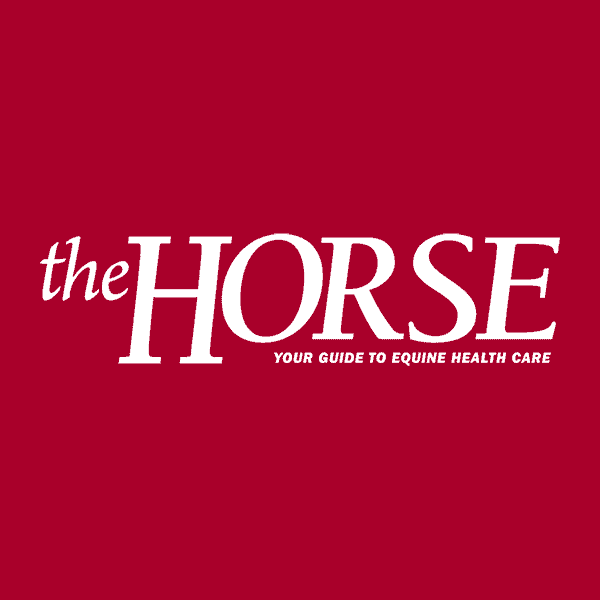Horse Council Opposes Federal HIPPA Rules Affecting Riders
The American Horse Council submitted comments opposing proposed regulations governing the provisions in the Health Insurance Portability and Accountability Act of 1996 (HIPAA). The regulations were proposed by the Internal Revenue Service, the
The American Horse Council submitted comments opposing proposed regulations governing the provisions in the Health Insurance Portability and Accountability Act of 1996 (HIPAA). The regulations were proposed by the Internal Revenue Service, the Pension and Welfare Benefits Administration and the Health Care Financing Administration.
HIPAA was passed in 1996 to improve the availability, affordability and access to group health insurance coverage for the group and individual market. “We believe that Congress intended that the Act protect individuals, like horseback riders, from being discriminated against and denied health insurance coverage, including benefits coverage, simply because they are participating in recreational activity. We had expected these federal agencies to enforce the non-discrimination provisions of HIPAA as they apply to benefits coverage. These proposals say the opposite,” said Jay Hickey, President of the AHC.
These proposed regulations would permit employers and insurers to negotiate group health plans that exclude health insurance benefits coverage based on activities, including horseback riding that the AHC believes Congress sought to protect in HIPAA. As the AHC reads this Act, it was intended to prohibit employers, unions and health insurers from denying health insurance coverage based on a worker’s pre-existing medical condition or participation in various recreational activities. The legislative history of the Act states that the law “is intended to ensure, among other things, that individuals are not excluded from health-care coverage due to their participation in activities such as motorcycling, snowmobiling, all-terrain vehicle riding, horseback riding, skiing and other similar activities.”
While the proposed rules prohibit a person from being excluded from a health insurance plan simply because he or she engages in riding, they permit an employer or insurer to include a “source of injury” provision in a policy that excludes coverage for benefits for injuries suffered while engaged in such activities. If such a provision were included in a group plan, it would effectively exclude individuals engaged in such activities. “The proposed rules do not deliver the full protections Congress intended for those who participate in recreational activities. In fact, as currently drafted, the “source-of-injury exclusion” is counter to the Congressional intent cited above and permits the denial of benefits coverage for injuries arising out of participation in any recreational activity,” the AHC argued in its comments.
“Clearly, Congress did not include the specific language quoted above in the legislative history of the Act to provide coverage for people who engage in recreational activities, only to be denied coverage in the event they sustain an injury while enjoying these activities,” said Hickey.
In its comments to the federal agencies in opposition to this provision, the AHC recommended that the rules be changed in final form to provide that if a group health plan generally provides benefits for a type of injury, the plan may not deny benefits otherwise provided for treatment of the injury if it results from participation in horseback riding and other recreational activities.
The AHC Foundation completed a study in 1996 of The Economic Impact of the Horse Industry in the United States that documented that the recreation and showing segments of the horse industry, those likely to be affected by these proposed rules, together have a $63.1 billion economic impact in the U.S., support 758,000 jobs and involve 5 million horses. Millions of Americans show horses or ride for exercise and recreation. This segment of the horse industry is growing rapidly. Horse owners, breeders, stables, outfitters, dude ranches, veterinarians and feed and tack stores all rely on the individual rider.
“If these proposed rules make it more difficult, more expensive or even impossible for horseback riders to purchase reasonable health insurance with benefits coverage for riding injuries, this would make it less likely that individual horsemen and women could afford to continue to participate. These rules as proposed could adversely affect this entire industry,” said Hickey.
It is important that the riding public understand the effect of these proposed regulations. They do not permit an insurer to peremptorily deny claims for riding injuries under existing plans. The new regulations will apply to group health plan years beginning in the future, not existing group health plans. If benefits for riding injuries are covered now, you should expect that they will remain covered through the life of the particular group plan. Nor is this a federal regulation that prohibits employers or insurance companies from providing benefits coverage for riding and other recreational injuries; any such coverage could continue to be a part of the negotiations between employers and health insurers when plans are designed in the future.
Nonetheless, the ramifications of these proposed rules are important. They are a statement by the federal agencies charged with enforcing HIPAA that it is a violation of the Act if an employer, union or health insurer denies participation in a group plan to riders and others enjoying recreation, but it is not a violation of HIPAA if a group health plan includes a provision limiting or denying benefits coverage for injuries suffered in connection with riding and other recreational activities. “This effectively has the same result and is, we believe, directly opposite to the intent of Congress,” said Hickey
Create a free account with TheHorse.com to view this content.
TheHorse.com is home to thousands of free articles about horse health care. In order to access some of our exclusive free content, you must be signed into TheHorse.com.
Start your free account today!
Already have an account?
and continue reading.

Written by:
The Horse Staff
Related Articles
Stay on top of the most recent Horse Health news with



















